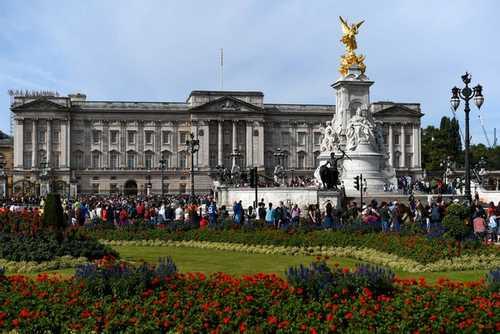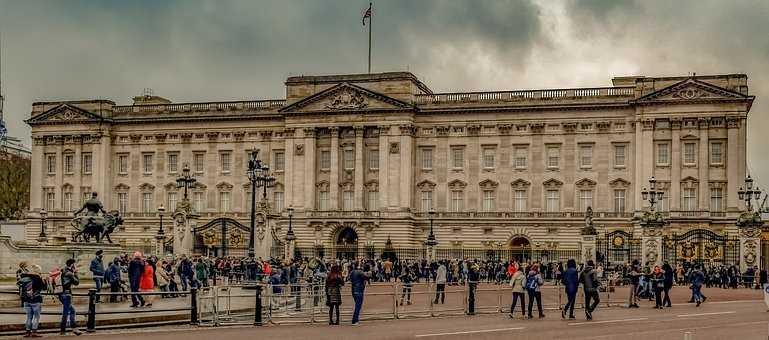A brief guide to the British royal family
Curated from: historyextra.com
Ideas, facts & insights covering these topics:
9 ideas
·2.02K reads
5
Explore the World's Best Ideas
Join today and uncover 100+ curated journeys from 50+ topics. Unlock access to our mobile app with extensive features.
Why Britain has a royal family
For centuries, virtually every country in the western world had some sort of king and royal family.
Some people in republics like France or the United States will say that clever people grew out of them. Monarchy lovers will respond that really clever countries kept their monarchies. They argue that royal families embody their country's human roots and identity. Brave kings and queens often become symbols of their nation's unity in times of war or crises.
27
416 reads
What the royal family does
The role of the royal family across the Commonwealth is that of morale boosters.
Younger family members are expected to join the armed forces or participate in some useful social service. Royal people present medals to brave soldiers and cups to sporting teams. They are expected to set a good example wherever they go.
24
258 reads
Power of the royal family
In a representative people's monarchy, the people have the power while the monarch has none.
The British royal family are not supposed to express political opinions. When Elizabeth II reads out the policies of 'Her' government in the Queen's Speech at the Opening of Parliament, she represents the power of the people whose votes put the prime minister of the moment into office. She is a mouthpiece of that government but does not express her own opinions.
26
218 reads
Why people care about the royal family
People identify with people. While politicians come and go, the royal family creates a sense of human continuity at the centre of society.
History shows that rebels and non-conformists in the family can create more affection than good ones. Diana, the maverick Princess, topped many of the royal popularity polls all over the world.
25
213 reads
The royals bring in money via tourism
Briitish taxpayers fund the royal family, which totalled £82.2m in 2018/19. This paid for their 3,200 royal engagements at home and abroad, with over 160,000 guests being welcomed at royal palaces for events. It also financed the reservicing of Buckingham Palace for £85m over the next five years.
While that is a lot of money, in 2016 alone, over 2.7 million tourists visited Buckingham Palace, Windsor Castle, and other key royal attractions, boosting Britains tourist revenues by £550m.
25
199 reads
The line of succession to the throne
- The present Queen received her title in 1952 from her father, George VI, whose claim went through his father, George V, to Queen Victoria.
- Today, the line of succession of the House of Windsor runs through Prince Charles (1), to his son Prince William (2) and then to his eldest son Prince George (3).
Succession runs through the male heirs, except when no male heirs are available. That law changed in 2015 for members of the royal family born after 28 October 2011.
25
195 reads
How the royal family's titles work
The royal family take their titles from the English shires - York, Lancaster, Gloucester, Cornwall.
- Prince Charles is Duke of Cornwall
- Prince Andrew is Duke of York
- Prince Edward is Earl of Wessex
For the next generation of royals,
- Prince William is Duke of Cambridge
- Prince Harry is Duke of Sussex
In term of precedence, the five male titles of the peerage are Duke, Marquess, Earl, Viscount and Baron. Duke is the highest and most exclusive.
28
194 reads
Arguments against the royals
- Critics say the institution of the monarchy is old-fashioned and artificially maintaining privileges of a bygone era.
- When the young royal joins the armed forces, they are automatically made officers, leading to inequality and hierarchy.
- Others complain that royals do insufficient work for the tax-payers money.
- Constitutionally, the splendour of the monarchy allows politicians to hide behind unearned 'palace prestige.'
- Atheists, agnostics, and free-thinkers condemn the royal family's endorsement of the Church of England.
28
160 reads
Why the British monarchy survived
The British royal family survived by being more open and flexible than many others.
The French monarchy was destroyed in a blood-bath in the 1790s because it aligned itself with an oppressive aristocratic upper class who exploited the people. In contrast, the British royal family kept company with merchants and entrepreneurs and was encouraging scientific research. Generally, the British kings accepted the will of the people as expressed through parliament.
27
171 reads
IDEAS CURATED BY
Saisha 's ideas are part of this journey:
Learn more about history with this collection
Creating a productive schedule
Avoiding procrastination
Prioritizing tasks effectively
Related collections
Similar ideas
5 ideas
8 ideas
How Prince Philip Modernized—and Fought to Preserve—the Monarchy
smithsonianmag.com
Read & Learn
20x Faster
without
deepstash
with
deepstash
with
deepstash
Personalized microlearning
—
100+ Learning Journeys
—
Access to 200,000+ ideas
—
Access to the mobile app
—
Unlimited idea saving
—
—
Unlimited history
—
—
Unlimited listening to ideas
—
—
Downloading & offline access
—
—
Supercharge your mind with one idea per day
Enter your email and spend 1 minute every day to learn something new.
I agree to receive email updates

